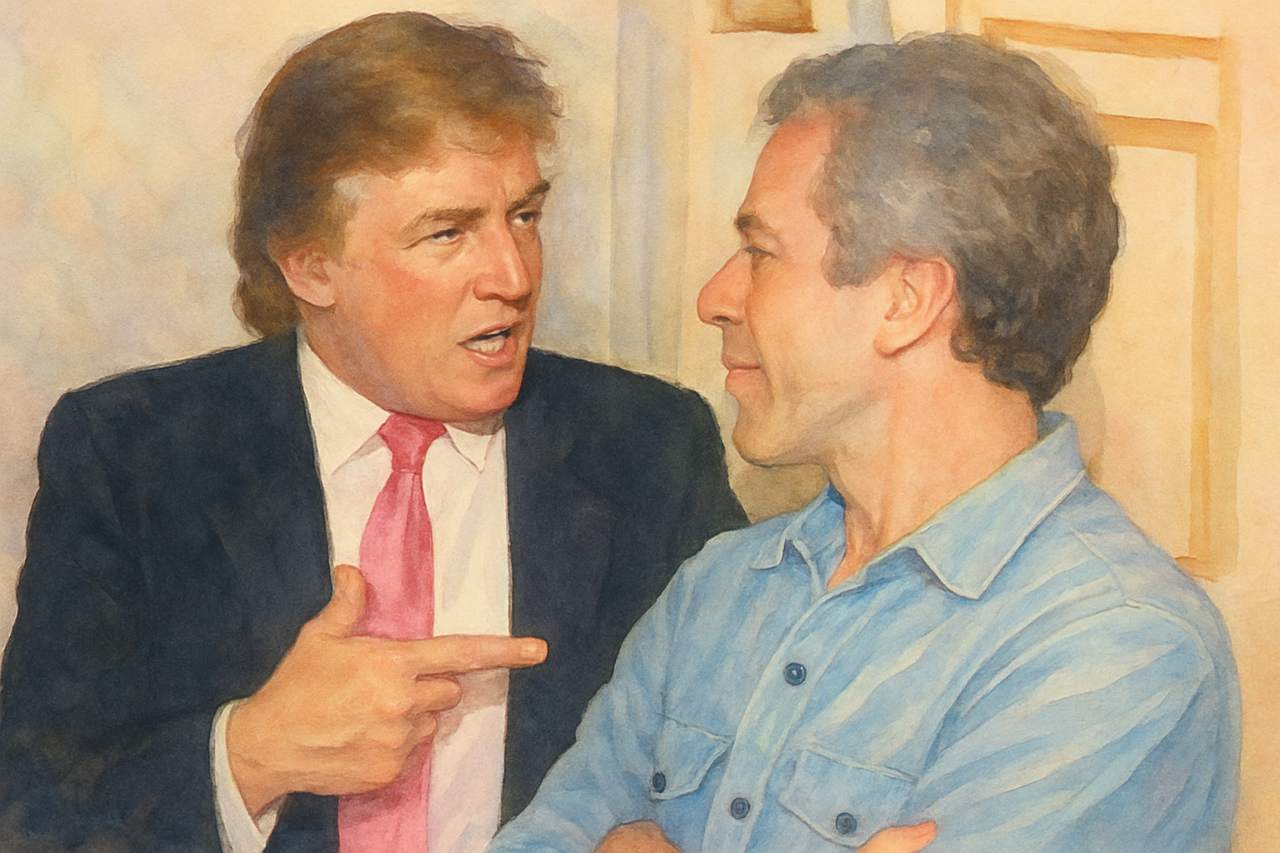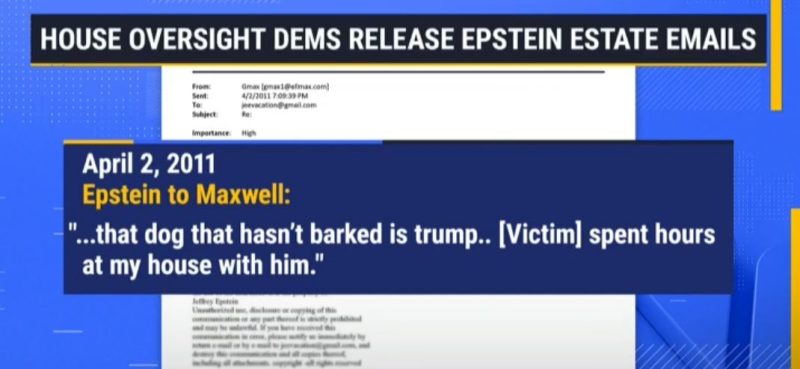
If you wanted a neat ending to the Epstein story, Washington just denied you that. House Democrats have released a tranche of Jeffrey Epstein’s emails, including messages in which the late sex offender asserted that Donald Trump “knew about the girls” and that a victim “spent hours at my house with him.”
The emails don’t prove criminal conduct by Trump. But they puncture years of denial and raise urgent questions about transparency, power, and the rule of law.

The documents, three exchanges highlighted so far, don’t accuse Trump of specific crimes. But they do undermine the former president’s long‑standing public claims that he kept Epstein at arm’s length and knew little about his conduct.
The substance matters less for what it alleges than for what it reveals: how comfortably proximity to power can warp public accountability. Democrats say these emails are part of tens of thousands of documents obtained from Epstein’s estate. Major outlets have now published the text and context of the messages, including a 2011 exchange with Ghislaine Maxwell and 2015–2019 emails with author Michael Wolff. They depict a world where reputational triage, crafting answers, gaming debates, and “saving” a politician to “generate a debt,” was part of the calculus as Epstein watched Trump’s ascent and tried to anticipate questions he might face on national television.
Read the messages and you feel it: the banality of elites who treat human suffering as a media strategy, not a moral line. That should unsettle all of us who care about democratic norms.
What The Emails Actually Say
In one April 2011 email, Epstein told Maxwell, “i want you to realize that that dog that hasn’t barked is trump.. [Victim] spent hours at my house with him,, he has never once been mentioned.” Maxwell replied, “I have been thinking about that.”
Another email from January 31, 2019, to Wolff said, “trump said he asked me to resign, never a member ever.. of course he knew about the girls as he asked ghislaine to stop.”
In a December 2015 exchange, as CNN prepared a GOP primary debate, Wolff told Epstein he’d heard Trump might be asked about Epstein. Epstein asked if they should “craft an answer.” Wolff’s response: “let him hang himself,” adding that if Trump denied flying on Epstein’s plane or visiting his home, Epstein could later use that as “PR and political currency,” or “save him, generating a debt.”
CBS and other outlets note they have not independently verified the emails. Trump did not send or receive these messages; they’re Epstein’s assertions to others. Maxwell, now serving a 20‑year sentence, has said in a separate interview she never saw Trump in an “inappropriate setting” and did not recall him at Epstein’s house, though she acknowledged social overlap. Trump has denied wrongdoing and historically cast the break with Epstein as a dispute over “poaching” young staff at Mar‑a‑Lago.
The Stakes: Transparency, Power, And Credibility
There’s an instinct in Washington to litigate minutiae. Was Epstein ever a “member” at Mar‑a‑Lago? Did Trump “bar” him, or did the relationship simply fray? That’s not the point. The point is whether the public gets full, credible access to the documentary record of how institutions handled a prolific abuser with powerful friends and whether elected leaders are honest about their proximity to him.
That’s why the House fight over the “Epstein files” matters. Oversight Democrats say the estate turned over more than 23,000 documents. They’re pushing the Justice Department to release government files with victims’ identities redacted. A discharge petition in the House to compel a vote on broader disclosure has hovered near the magic number of signatures needed to move forward. The politics are clear. The White House calls the push a “hoax,” while critics argue the administration is slow‑walking transparency it once promised.
In a healthier system, a president with past ties to Epstein would champion maximal sunlight, depoliticized, comprehensive, and rigorous, precisely to restore trust. Instead, we’re in a tug of war over drips of disclosure, with partisan incentives on both sides and survivors left to watch institutions re‑argue who should be embarrassed.
The Pattern We Keep Refusing To See
The emails’ most revealing line isn’t “he knew about the girls.” It’s the 2015 exchange about how to “hang” or “save” Trump depending on his political prospects. It’s a glimpse into the currency of proximity: the way access, favors, and silence circulate among people who believe rules are for other people. That’s corrosive to democratic norms because it shifts the center of gravity from law and accountability to leverage and loyalty.
We have been here before. Epstein’s original 2008 non‑prosecution agreement, brokered by prosecutors who later ascended to national power, was a masterclass in elite impunity, later exposed and condemned. That history is an argument for radical transparency, not for amnesia.
Where This Goes Next
Expect more releases. Outlets suggest this is an initial slice of a larger document universe. If there are exculpatory records, the White House should want them out. If there are damaging ones, the public deserves to see them with appropriate redactions to protect survivors.
Separate the moral from the criminal. The bar for indicting a president is far higher than the bar for demanding honesty about his past. No one should overstate what these emails prove. But they undercut the myth of blissful ignorance, and that matters for judging character and credibility.
Watch Congress. The discharge‑petition strategy and broader subpoenas to the DOJ, former officials, and private entities will test whether institutional pressure can lift the shroud. Survivors and the public are not served by selective leak wars. They are served by a comprehensive, verifiable record.
The Global Democratic Lens
This isn’t just about one president or one predator. Democracies live or die on whether elites are accountable under the same rules as everyone else. Countries across the democratic world are watching the U.S. wrestle with impunity on political violence, on corruption, and on sexual exploitation by the powerful. When leaders dismiss transparency as a “hoax,” they license every would‑be strongman to do the same. When institutions insist on sunlight, they strengthen the civic muscle memory we keep needing.
A functional republic does not outsource its conscience to publicists. Release the files fully, responsibly, and fast. Then let the facts, not the spin, carry the weight they deserve.
